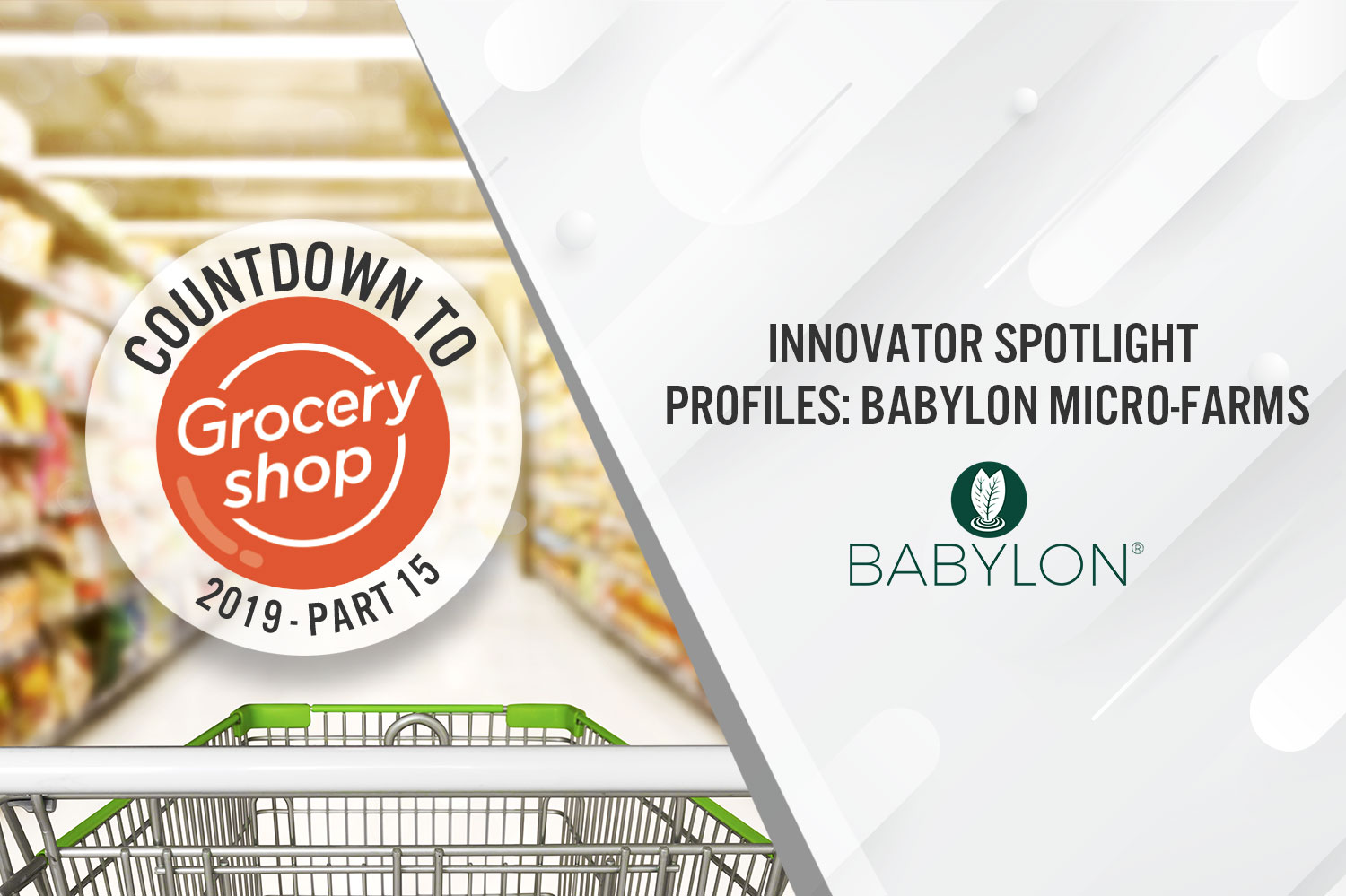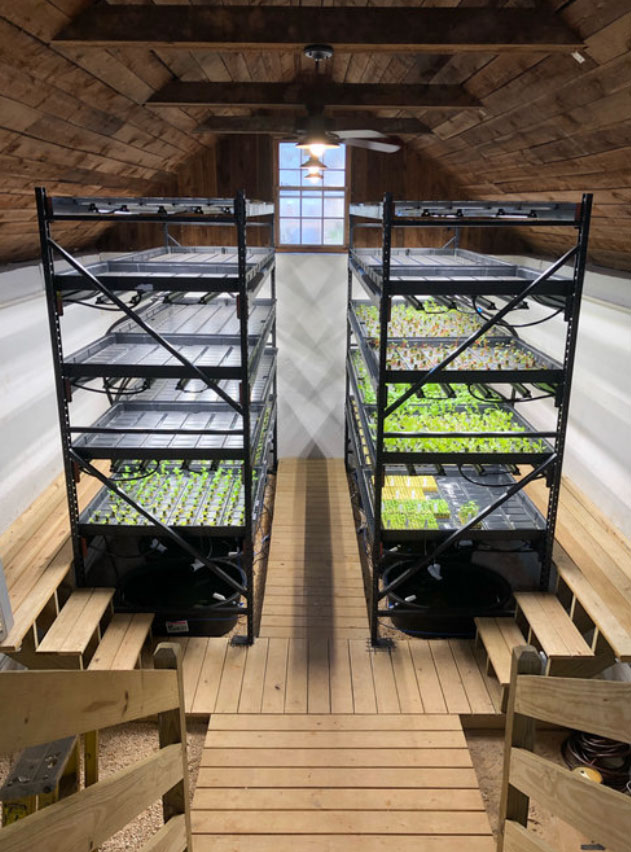
DIpil Das
Groceryshop 2019
The Coresight Research team will be attending and participating in the Groceryshop 2019 conference, which runs September 15-18 in Las Vegas.
The conference is expected to bring together over 3,000 attendees and more than 200 speakers. Discussion topics will include the transformation of the retail industry, including convenience stores, supermarkets and e-commerce, and changes in the production and distribution of CPGs across multiple retail verticals.
The event also covers the rapid shifts in how consumers discover, shop and buy — from the use of new technologies and business models to the latest shopper trends.
Emerging Technology Spotlight Session
This is the second year the Coresight Research team will support Groceryshop’s early-stage technology startup event: On September 15, Coresight Research CEO and Founder Deborah Weinswig will emcee the Emerging Technology Spotlight, which features 20 innovative technology companies presenting their solutions to solve major retail problems.
Groceryshop selected the participating startups based on their solutions, looking for companies that solve some of the most pressing challenges in grocery, e-commerce, food and CPG. All participating startups offer business-to-business (B2B) solutions. Over 130 companies applied to present at the event: From that group, we selected the 20 using a rigorous vetting process.
These are some of the selection criteria:
 Source: Babylon Micro-Farms [/caption]
What Problem Does Babylon Micro-Farms Solve?
Food retailers and restaurant owners would love to be able to offer locally grown fresh produce – growing on site would be a particular selling point for consumers looking for a true farm-to-table experience. However, the infrastructure is complex and adding that to the already daunting task of running a grocery store or restaurant would be impractical. Babylon Micro-Farms offers modules with fixed dimensions; food retailers and restaurant owners can choose the number of modules based on the size of their operations and the produce variety they want. The Babylon app provides live data and harvest scheduling on the farm; farm owners can also re-order the growing supplies from the app.
Headquarters
Charlottesville, Virginia.
Funding Stage
Seed.
Management Team
Founder Alexander Olesen graduated with a degree in foreign affairs and social entrepreneurship prior to founding Babylon Micro-Farms.
Market Potential
According to Organic Produce Network and Nielsen, sales of organic fresh produce increased 8.6% to $5.6 billion in 2018 in the US.
Company Outlook
In August 2019, Babylon Micro-Farms received an undisclosed amount in seed funding from CIT GAP Funds.
Source: Babylon Micro-Farms [/caption]
What Problem Does Babylon Micro-Farms Solve?
Food retailers and restaurant owners would love to be able to offer locally grown fresh produce – growing on site would be a particular selling point for consumers looking for a true farm-to-table experience. However, the infrastructure is complex and adding that to the already daunting task of running a grocery store or restaurant would be impractical. Babylon Micro-Farms offers modules with fixed dimensions; food retailers and restaurant owners can choose the number of modules based on the size of their operations and the produce variety they want. The Babylon app provides live data and harvest scheduling on the farm; farm owners can also re-order the growing supplies from the app.
Headquarters
Charlottesville, Virginia.
Funding Stage
Seed.
Management Team
Founder Alexander Olesen graduated with a degree in foreign affairs and social entrepreneurship prior to founding Babylon Micro-Farms.
Market Potential
According to Organic Produce Network and Nielsen, sales of organic fresh produce increased 8.6% to $5.6 billion in 2018 in the US.
Company Outlook
In August 2019, Babylon Micro-Farms received an undisclosed amount in seed funding from CIT GAP Funds.
- Early-stage, defined as pre-series A funding.
- Relevant to the grocery and/or CPG industries.
- B2B solutions (not consumer-facing).
- Scalable (good growth prospects).
- Highly innovative (deep differentiation).
- Important (solving a major industry problem).
- US: 14
- Canada: 2
- Israel: 2
- Australia: 1
- Spain: 1
 Source: Babylon Micro-Farms [/caption]
What Problem Does Babylon Micro-Farms Solve?
Food retailers and restaurant owners would love to be able to offer locally grown fresh produce – growing on site would be a particular selling point for consumers looking for a true farm-to-table experience. However, the infrastructure is complex and adding that to the already daunting task of running a grocery store or restaurant would be impractical. Babylon Micro-Farms offers modules with fixed dimensions; food retailers and restaurant owners can choose the number of modules based on the size of their operations and the produce variety they want. The Babylon app provides live data and harvest scheduling on the farm; farm owners can also re-order the growing supplies from the app.
Headquarters
Charlottesville, Virginia.
Funding Stage
Seed.
Management Team
Founder Alexander Olesen graduated with a degree in foreign affairs and social entrepreneurship prior to founding Babylon Micro-Farms.
Market Potential
According to Organic Produce Network and Nielsen, sales of organic fresh produce increased 8.6% to $5.6 billion in 2018 in the US.
Company Outlook
In August 2019, Babylon Micro-Farms received an undisclosed amount in seed funding from CIT GAP Funds.
Source: Babylon Micro-Farms [/caption]
What Problem Does Babylon Micro-Farms Solve?
Food retailers and restaurant owners would love to be able to offer locally grown fresh produce – growing on site would be a particular selling point for consumers looking for a true farm-to-table experience. However, the infrastructure is complex and adding that to the already daunting task of running a grocery store or restaurant would be impractical. Babylon Micro-Farms offers modules with fixed dimensions; food retailers and restaurant owners can choose the number of modules based on the size of their operations and the produce variety they want. The Babylon app provides live data and harvest scheduling on the farm; farm owners can also re-order the growing supplies from the app.
Headquarters
Charlottesville, Virginia.
Funding Stage
Seed.
Management Team
Founder Alexander Olesen graduated with a degree in foreign affairs and social entrepreneurship prior to founding Babylon Micro-Farms.
Market Potential
According to Organic Produce Network and Nielsen, sales of organic fresh produce increased 8.6% to $5.6 billion in 2018 in the US.
Company Outlook
In August 2019, Babylon Micro-Farms received an undisclosed amount in seed funding from CIT GAP Funds.